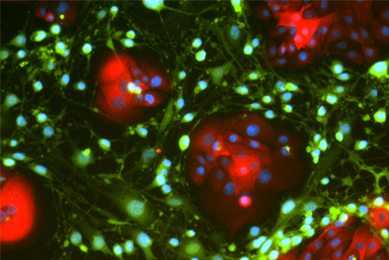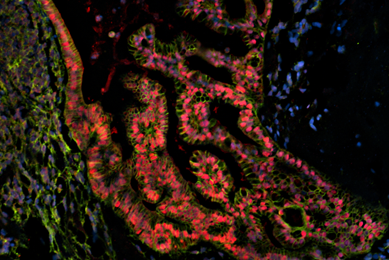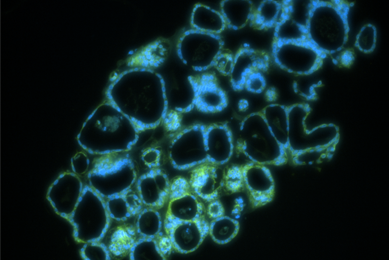ATCC Expands Commercially Available Collection of Rare Cancer Culture Models Derived From Patient Samples in Collaboration with HCMI

Variety of Cancer Types Represented by HCMI Models to Broaden, and Collection Volume to Increase by More Than 50%
Manassas, VA, United States
June 24, 2021The HCMI is an international consortium dedicated to generating novel human tumor-derived models annotated with genomic, clinical, and biospecimen data. The consortium comprises of funding agencies and cancer model development and sequencing centers, including the NCI, Cancer Research UK (CRUK), Hubrecht Organoid Technology (HUB), and Wellcome Sanger Institute (WSI). NCI funds cancer model development centers including Broad Institute, Cold Spring Harbor Laboratories, Stanford University, and Weill Cornell Medical College. ATCC is the distributor for the HCMI models. The cancer model generating institutions deposit the models into ATCC, where they are authenticated, expanded, preserved, and made available for global distribution.
"We understand how important reliable cancer models are to overcoming the roadblocks that hinder cancer research and pre-clinical drug discovery," said Raymond Cypess, DVM, Ph.D., Chairman and CEO of ATCC. "ATCC brings nearly 100 years of cell culture experience to this effort. It's that tried and tested expertise that enables us to ensure the highest quality models — which are essential if we're to support meaningful breakthroughs in cancer research that will benefit all patients, today and tomorrow."
ATCC is committed to making available a growing collection of patient-derived next-generation cancer models (NGCMs) generated by the HCMI that includes common as well as rare and understudied examples of cancer from numerous tissues. For this latest expansion, over the coming months, ATCC will add to the collection nearly 100 human-patient derived models from primary, metastatic, and recurrent cancers — in addition to models from diverse genetic backgrounds. The expanded collection will include rare and pediatric cancers — along with organoids and other advanced models — for cancers of the colon, pancreas, breast, stomach, and esophagus. ATCC also will be releasing its first gallbladder model.

"What differentiates these models from historical cancer cell lines is the accompanying bioinformation; the breadth and depth of the patient, tumor and model bioinformation is unique and will enable insights and advances in cancer research that were not previously possible," explained Mindy Goldsborough, Ph.D., Chief Scientific Officer of ATCC. "The production and distribution of these models is now happening at scale. And it's contributing to research that's more valuable and reproducible than ever before."
Members of the HCMI Consortium are acutely aware of just how significant organoids and other advanced-technology cancer models are to speeding up the pace of life-saving discovery. The crucial role that ATCC plays in supplying them is evident:
"By enabling broad dissemination, the partnership between HCMI and ATCC is democratizing the use of these new cancer models,” said Olivier Elemento, Director of the Englander Institute for Precision Medicine at Weill Cornell Medicine. "And that can only lead to life-changing breakthroughs."
"The world is currently witnessing an unprecedented, transformative shift in cancer models that will serve as the foundation for the future of cancer research," echoed Jesse Boehm, Principal Investigator at the Broad Institute and the Director of the Broad Cancer Model Development Center. "Our collaboration with ATCC empowers us to drive the kind of research that will directly benefit human health — with the ultimate goal of saving people's lives."
About ATCC
ATCC is a premier global biological materials and information resource and standards organization and the leading developer and supplier of authenticated cell lines, microorganisms, and associated data for academia, industry, and government. With a history of scientific contributions spanning nearly a century, ATCC offers an unmatched combination of being the world’s largest and most diverse collection of biological reference materials and data, and is a mission-driven, trusted partner that supports and encourages scientific collaboration. ATCC products, services, partnerships, and people provide the global scientific community with credible, advanced, model systems to support complex research and innovations in basic science, drug discovery, translational medicine, and public health. ATCC is a 501(c)3 nonprofit organization with headquarters in Manassas, Virginia, and a research and technology center of excellence in Gaithersburg, Maryland.
Contact: Kim Testa, senior director, Corporate Communications & Public Affairs, ATCC, [email protected]
Advanced tumor model tools

Clinical Cancer Models
Cancer models derived from tumor biopsies from the HCMI are valuable for translational cancer research and targeted therapies.
More
Organoids
Patient-derived organoids are authenticated cell models paired with genomic and phenotypic data. Organoids are available from the Human Cancer Models Initiative (HCMI) and contribute to valuable and reproducible research.
More Webinar
Webinar
Organoid Culture Fundamentals: Critical Steps for Success
Culturing organoids can be intimidating. In this webinar, an ATCC expert presents step-by-step instructions that thoroughly demonstrate the process of thawing, expanding, and cryopreserving organoids.
More